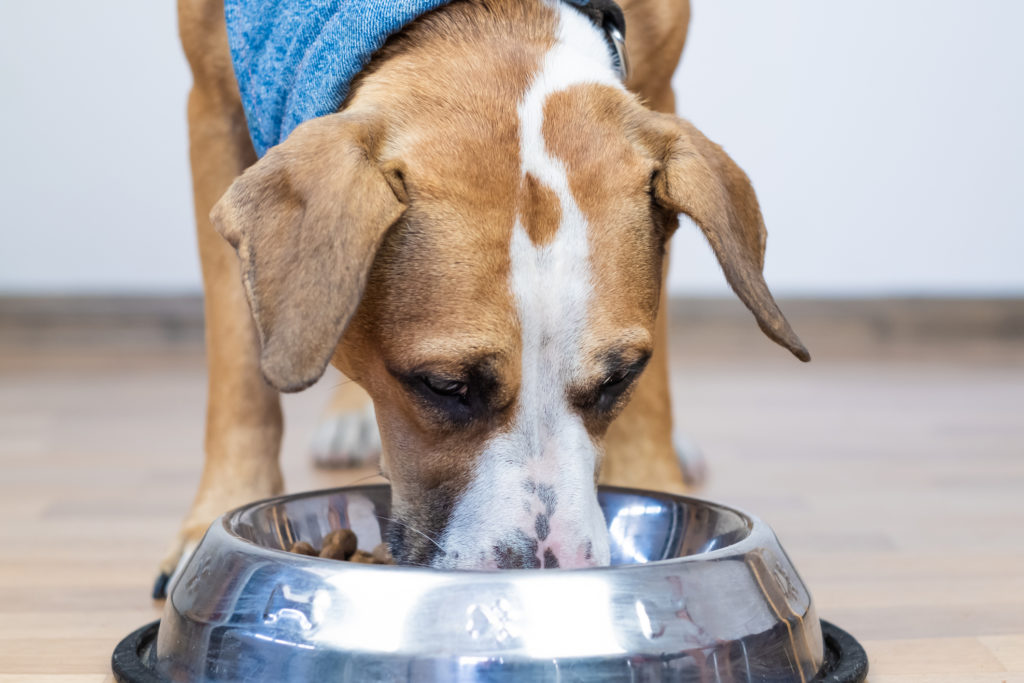Their work suggests that raw-frozen dog food contains bacteria that are capable of resisting mainstream antibiotics.

This poses a risk of the transmission of these antibiotic resistant bacteria from dogs to humans, constituting an international public health risk, say the authors of the study.Start of the article: New research suggests raw-frozen dog food contains bacteria that are resistant to key antibiotics.The creators were because of present their work at the now dropped 2020 European Congress of Clinical Microbiology and Infectious Diseases (ECCMID).

Anti-infection obstruction According to the Centers for Disease Control and Prevention (CDC), “[a]ntibiotic opposition is one of the greatest general wellbeing difficulties within recent memory.” The CDC feature that 35,000 individuals kick the bucket in the wake of building up an anti-toxin safe contamination every year in the United States.

The World Health Organization (WHO) depict anti-microbial opposition as “perhaps the greatest risk to worldwide wellbeing, food security, and improvement today.” The WHO note that despite the fact that microorganisms can normally get impervious to anti-infection agents after some time, the abuse of anti-infection agents by people is speeding the procedure up. This impact is going on either from the manner in which we take anti-toxins or from the manner in which we use them in creature populaces. As per 2018 research in the diary Molecules, antibacterial obstruction in animals has essentially evolved because of individuals’ expanding interest for meat and dairy and the escalated cultivating this requires. To satisfy this need, concentrated agrarian practices have developed altogether. Because of the conditions under which ranchers back animals in escalated horticulture, the far reaching utilization of anti-infection agents is important to keep up the strength of domesticated animals. This training builds the odds of microbes creating anti-toxin opposition, which can spread to people in a few ways.Frozen hound food In the examination that the ECCMID was expected to hear, the writers concentrated on another part of anti-toxin obstruction in creatures: The likelihood that crude solidified canine food may harbor anti-toxin safe microscopic organisms. As indicated by a recent report in the Journal of Small Animal Practice, crude food abstains from food for pets have developed in prevalence as of late.

This is essentially because of what individuals see as the medical advantages of creatures devouring a progressively ‘regular’ diet and doubt at handled pet nourishments. The examination takes note of that there is little proof to help the medical advantages of such an eating routine, that individuals regularly recommend. Conversely, a similar report takes note of that there is developing proof that crude food pet weight control plans might be perilous for the two creatures and people. The creators focus on the hazard that crude solidified pooch food may posture to antibacterial obstruction. The creators took 46 examples of pooch food — 22 wet, 15 dry, and nine crude solidified — from 24 universal brands. They at that point refined these examples and tried them with a scope of anti-microbials. Microscopic organisms protection from key anti-microbials Different sorts of Enterococci microorganisms showed up in 41% (19 out of 46) of the general examples. The researchers found these microscopic organisms in 53% (8 out of 15) of the dry pooch food and 9% (2 out of 22) of the wet canine food. Be that as it may, they discovered them in every one of the nine examples of the crude solidified canine food. At the point when the creators took a gander at the crude solidified examples in more detail, they found that they all conveyed microscopic organisms that are impervious to numerous anti-microbials, including standard anti-microbials that medicinal services experts endorse normally.

Conversely, medicate safe microbes polluted scarcely any examples of the wet or dry canine food. For the creators of the investigation, “[t]he close contact of pets with people and the commercialization of the contemplated marks in various EU nations represent a global general wellbeing hazard if transmission of such strains happens among pooches and people.” “There is solid past and late proof that canines and people share basic multidrug safe strains of Enterococci faecium, and, subsequently, the potential for these strains to be transmitted to people from hounds.”

According to Dr. Ana Raquel Freitas from the Faculty of Pharmacy, University of Porto, Portugal, and a creator of the examination, “These crude solidified nourishments should be devoured in the wake of being defrosted and could at any rate be cooked, to execute these medication safe and other microscopic organisms.” “Although these foods seem to be regulated, regarding their microbiological safety by EU authorities, risk assessment of biological hazards should also include antibiotic resistant bacteria and/or genes besides only establishing the presence of bacterial pathogens, such as salmonella.” Source: MedicalNewsToday
Another story in video: